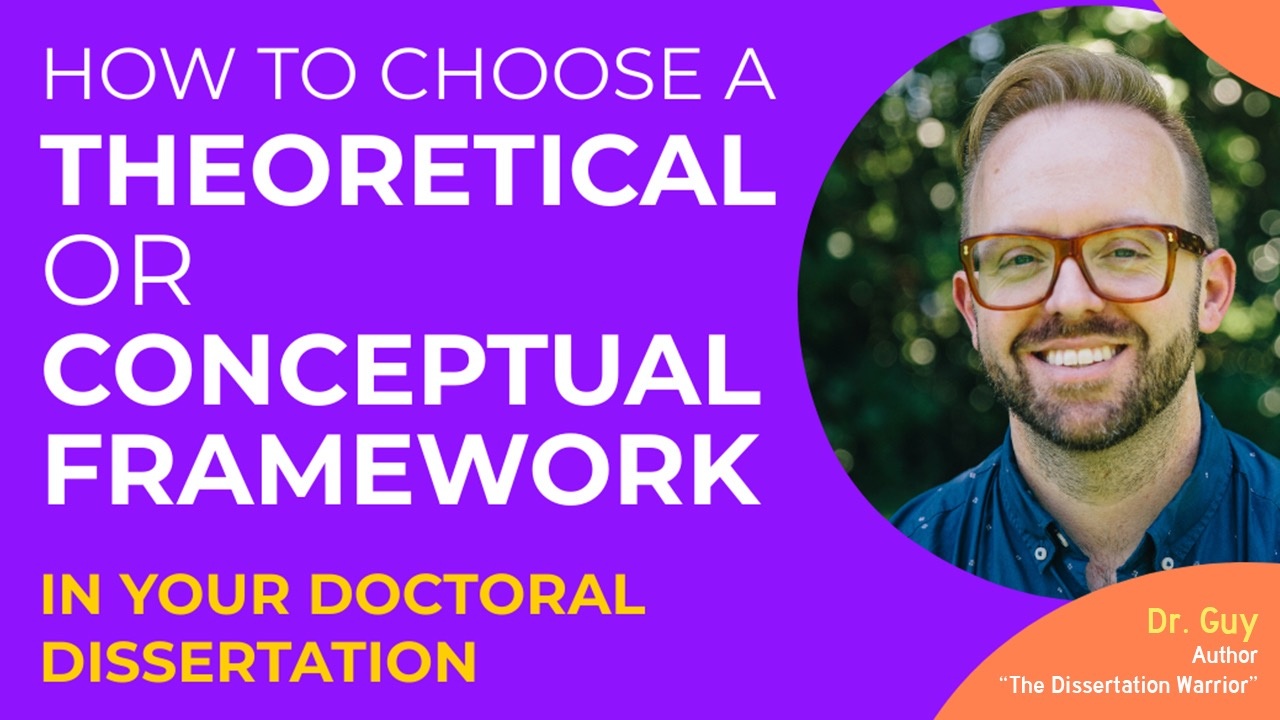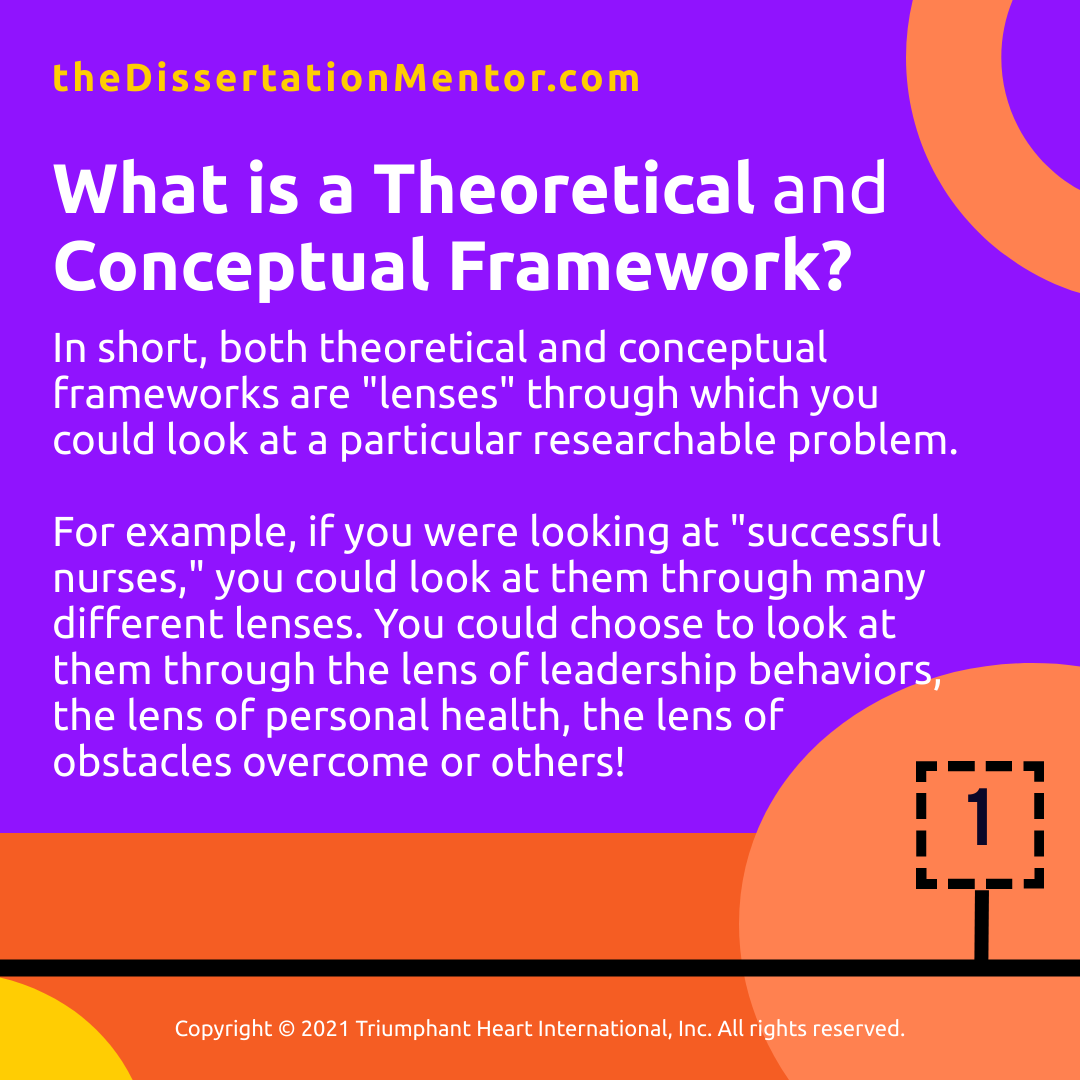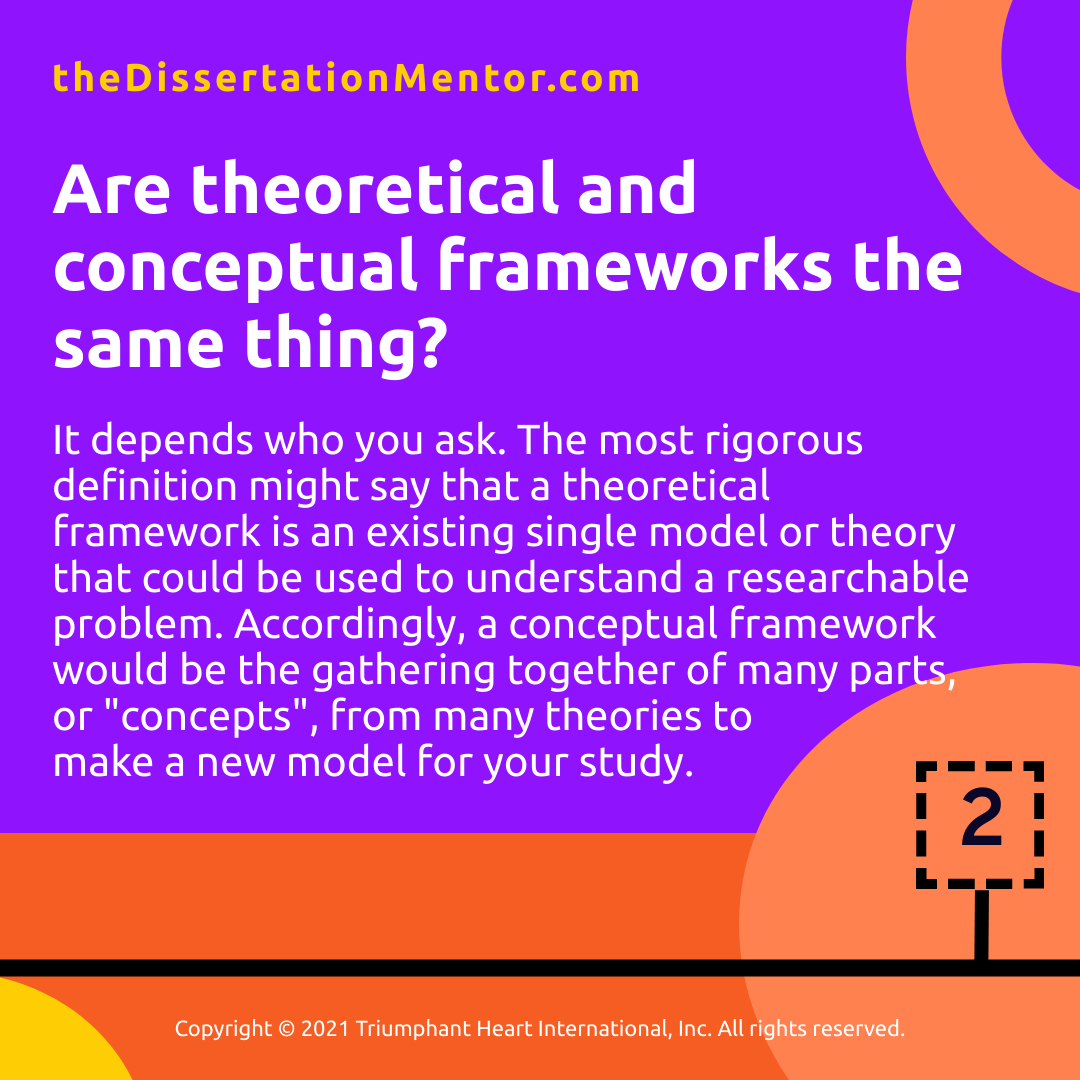How to Choose a Theoretical Framework or Conceptual Framework For Your Doctoral Dissertation

Introduction
Hi Dissertation Writer! If you have found your way to this article, you are probably feeling lost. Not only are you disoriented, but you are “lost” in the worst way: You are lost when it does not have to be this way! I’m Dr. Guy, author of “The Dissertation Warrior,” and founder of the world’s most comprehensive online dissertation writing training for doctoral students: The Dissertation Mentor® Accelerator Program.
I'm running my Dissertation Summer Camp very soon. You should definitely attend! Now, onto the article.
Purpose of this Article
Most doctoral candidates, in my experience, regard theoretical frameworks and conceptual frameworks as one of the hardest-to-understand aspects of their doctoral dissertation. Many doctoral programs do not teach theoretical or conceptual frameworks within their writing or research courses (if they have such courses!). Further, many doctoral programs, for many good reasons, emphasize learning objectives that will immediately be useful for the learner in the field – leaving “theory” to be a lesser-emphasized aspect of a student’s doctoral experience. Accordingly, clarity around this topic is not “easy” to find.
What is a theoretical framework? What is a conceptual framework?
In the most basic sense, both theoretical and conceptual frameworks are “lenses” through which you could look at a particular researchable problem. For example, if you were interested in what lived experiences led to a specific set of nurses to be successful, you could choose many different lenses to guide that exploration. You could be interested in the mentoring they received, so you might pick “mentorship” as your lens. Alternatively, you might be interested in how their experiences related to the intersection of their gender, ethnicity, and generational identities, so you could pick “intersectionality” as your lens. Likewise, you might be interested in their leadership behaviors, so you could choose a lens that relates to “leadership.” Notice how in all these cases, we went from the whole world of possibilities about what you COULD explore about these successful nurses into a specific avenue of exploration. That’s what theoretical and conceptual frameworks do: They are one of many mechanisms in your dissertation that provides greater focus in your study.
Still, choosing “mentorship,” “intersectionality,” or “leadership” is not the same thing as selecting a theoretical or conceptual framework. It’s the first step.

Are theoretical and conceptual frameworks the same thing?
It really depends on who you ask. In the strictest definition, which I don’t recommend you adopt, one could say that a theoretical framework is chosen, whereas a conceptual framework is created.
In this very strict definition, a theoretical framework is a specific, existing theory or model that you select as the lens through which you will look at your study’s specific researchable problem. Your theoretical framework has a specific name and is attributable to a specific author or set of authors.
In this, still, very strict definition, a conceptual framework is a theory or model of your own creation – built because you did not feel that there was an existing theory or model out there that, alone, could help explore the specific researchable problem named by your study. To build such a model, you would take “concepts” from various theories and models out there in the literature. You then would put them together in your own “Frankenstein Monster” of models.
However, before I start getting hate-mail, I want to say that this definition is way too strict – as it does not account for how different doctoral programs (and even different dissertation chairs/advisors) treat these terms. Some programs will require you to use a theoretical framework for quantitative studies and a conceptual framework for qualitative studies. Some programs will only allow you to use what they call a conceptual framework. Some programs treat theoretical and conceptual frameworks as the same thing! Others have even created their own terms (which I won’t mention here) to describe these frameworks.
When I work with doctoral candidates directly in The Dissertation Mentor® One-To-One Mentorship, we always look deeply at how their doctoral programs treat these terms – as dissertations from one’s own doctoral program provide great clues for how to find or build one’s own theoretical or conceptual framework.

What does a theoretical and conceptual framework look like in action?
Let’s say you were interested in the aforementioned “successful nurses.” If you adopted Bass and Avolio’s (1995) Full Range of Leadership Model as your framework, you would focus on what that model cares about: transformational, transactional, and laissez-faire leadership behaviors. You might ask questions of these nurses about their transformational leadership behaviors, their transactional leadership behaviors, and their laissez-faire leadership behaviors.

Alternatively, if you selected Maslow’s (1954) Hierarchy of Needs as your framework, you might ask these successful nurses about each level of that famous triangle: How were their physiological needs addressed? How were their safety needs addressed? How were their belonging needs addressed? … and so on.

Without these lenses, we could indeed ask anything of these successful nurses. Such a situation would lead, potentially, to a very poorly designed study. With a lens chosen, the focus is clear!
Action Steps: So, which theoretical or conceptual framework should I choose?
First, figure out how your doctoral program deals with theoretical and conceptual frameworks. Go find the most recent 25 dissertations from your doctoral program. Try to find dissertations that are generally the same research design as you are pursuing: Quantitative or qualitative.
Second, ask yourself: “Where, explicitly, is the theoretical or conceptual framework discussed in these dissertations?” If they show up in multiple chapters, ask yourself, “What role do they play in each of these chapters?”
Third, make a list of all the theoretical or conceptual frameworks you encounter. Note the authors that created the framework, the purpose statement of the study, and the research questions asked.
Finally, continue your literature search/review work in earnest. Don’t force yourself to choose a framework right away. Instead, keep a running list of the theories and models you encounter as you do your natural reading. You should not select your theoretical or conceptual framework, in my view, until you have a list of at least ten other theories or models that you could have adopted.

Parting Words
Remember that finding or building a theoretical or conceptual framework for your study is not something that happens overnight. Even if you found a model that takes your breath away, that’s only about 10% of the work: You still need to create a list of all the theories or models you could have chosen!
You don’t want to go to your advisor in love with a framework without being able to explain why it is ‘da bomb. You want to be able to explain of why, in the ocean of all other theories and models, you selected this special one.
If you found this article helpful and want to check out my other resources, you can find them below and always at my website at www.theDissertationMentor.com
If you want to pour jet-fuel on your dissertation writing process, consider joining me in my flagship program.
Further Learning
Read: Chapters 29 and 36 of "The Dissertation Warrior"
Watch: How to Choose a Theoretical Framework for My Dissertation
Watch: Theoretical Framework and Conceptual Framework in Your Doctoral Dissertation with Dr. Guy E. White
My Program: The Dissertation Mentor® Accelerator Program
Get all Dr. Guy's free stuff in one email! A dissertation treasure!
It's my purpose on this planet to help doctoral dissertation writers finish so they can graduate. I'll send you all my free stuff in one email. Then, I'll send you more amazing stuff as I create it! By signing up for our freebies, you agree to abide by our terms and privacy policy.



